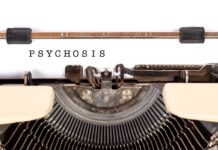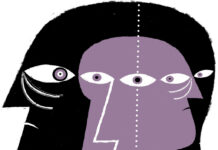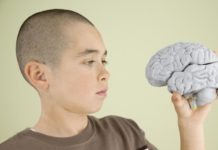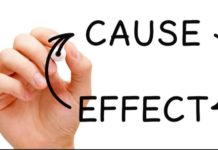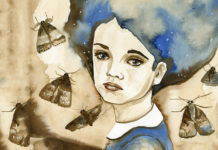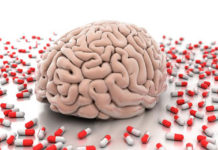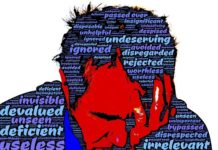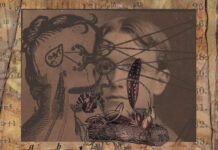The Dopamine Hypothesis of Schizophrenia – Version III
The Division of Clinical Psychology of the British Psychological Society published a paper titled Understanding Psychosis and Schizophrenia. The central theme of the paper is that the condition known as psychosis is better understood as a response to adverse life events rather than as a symptom of neurological pathology. The paper was wide-ranging and insightful and, predictably, drew support from most of us on this side of the issue and criticism from psychiatry. Section 12 of the paper is headed "Medication" and under the subheading "Key Points" you'll find this quote: "[Antipsychotic] drugs appear to have a general rather than a specific effect: there is little evidence that they are correcting an underlying biochemical abnormality."
De-Othering “Schizophrenia” by Placing it in Socio-Historical Context
Understanding schizophrenia as a non-enigmatic, understandable human experience goes against a history of institutional “othering” that has sustained psychiatric legitimacy and further marginalized service-users.
Study Connects Environmental Risk Factors and Psychosis
A meta-analysis of known risk factors for psychosis finds elevated risk with the presence of childhood trauma, adverse life events, and affective dysfunction.
ADHD Drugs Linked to Psychotic Symptoms in Children
Stimulant medications like Ritalin and Adderall, often prescribed to treat children diagnosed with ADHD, are known to cause hallucinations and psychotic symptoms. Until recently these adverse effects were considered to be rare. A new study to be published in the January issue of Pediatrics challenges this belief, however, and finds that many more children may be experiencing psychotic symptoms as a result of these drugs than previously acknowledged.
Hallucinations Reported as Side Effect of ADHD Medication
Hallucinations and other psychotic symptoms have been reported after methylphenidate (Ritalin) treatment for ADHD.
Antipsychotics Associated with High Risk of Death in Children
A new study has found that children and adolescents taking a high dose of antipsychotics are almost twice as likely to die of any cause than children on other types of medications.
The Role of Racial Bias in the Overdiagnosis of Schizophrenia
Researchers detect disparity between white and African American patients diagnosed with schizophrenia when symptoms of a mood disorder are present.
Traumagenic Neurodevelopmental Model of Psychosis — Revisited
The traumagenic neurodevelopment model of psychosis, introduced in 2001, highlighted similarities between brain abnormalities found both in people who have been abused and those...
Researchers Warn of “Brain Atrophy” in Children Prescribed Antipsychotics
Researchers discuss the evidence that antipsychotic medications may cause brain atrophy in children, whose brains are still developing.
Researchers Suggest Traumatic Experiences May Cause Psychotic Symptoms
A new study in JAMA Psychiatry investigates the relationship between trauma and psychotic experiences.
Against the Odds: ‘Unimproved Schizophrenic’ to Yale PhD
Forty years after I had first been admitted to the hospital, I was ready to confront my past. So, I sent for my hospital records, and I read them. As an experienced clinician, I recognized immediately what the doctors hadn’t been able to see in 1960: my problem wasn’t ‘schizophrenia’ but PTSD, connected with incest.
New Review of Antipsychotics for Schizophrenia Questions Evidence for Long Term Use
A systematic review of the limited research available on the long-term effects of antipsychotics finds fewer symptoms in those off of the drugs.
New Research Suggests Brain Abnormalities in ‘Schizophrenia’ May Result From Antipsychotics
Study finds that reduced cortical thickness and brain surface area associated with 'schizophrenia' may result from antipsychotic drug use.
On “Schizophrenia”
The first time I heard someone labeled schizophrenic I was about 10 years old. A man was talking to himself and appeared to be house-less and perhaps on drugs. My mom, a very good teacher and explainer of things to me, said, “That man is schizophrenic. That means he can't tell the difference between what's inside of himself and what's outside.” In retrospect this seems like a relatively sophisticated and sensitive explanation; Falling in love, hearing music that enters our heart, having children/giving birth, connecting powerfully with another person in a meeting of the minds, feeling empathy, deeply caring about something, experiencing oneness with nature, are all examples of times when the line between inner and outer reality is blurred.
Madness and the Family, Part III: Practical Methods for Transforming Troubled Family Systems
We are profoundly social beings living not as isolated individuals but as integral members of interdependent social systems—our nuclear family system, and the broader social systems of extended family, peers, our community and the broader society. Therefore, psychosis and other forms of human distress often deemed “mental illness” are best seen not so much as something intrinsically “wrong” or “diseased” within the particular individual who is most exhibiting that distress, but rather as systemic problems that are merely being channeled through this individual.
Psychosocial Explanations of Psychosis Reduce Stigma, Study Finds
A review of mental health anti-stigma campaigns finds psychosocial models are effective in reducing stigma, while biogenetic models often worsen attitudes.
AVATAR Therapy Shows Some Positive Outcomes, Now What?
In a commentary piece, Ben Alderson-Day and Nev Jones discuss the AVATAR therapy research for psychosis and propose further questions.
Study Explores Māori Community’s Multifaceted Understanding of “Psychosis”
A new study explores how “psychosis” and “schizophrenia” are viewed within the Māori community in New Zealand.
Guiding Voices, Trauma-Induced Voices
I have facilitated support groups and worked one-on-one with those who hear voices for nearly 10 years.. The insights I've come to from my own experience have often facilitated understanding for others. Here is what I have learned from my experience of hearing voices.
Study Examines Women’s Experiences of Hearing Voices
An international group of researchers from multiple disciplines has published a historical, qualitative, and quantitative investigation into voice-hearing in women. The interdisciplinary project, freely available from Frontiers in Psychiatry, explores how sexism, exploitation, and oppression bear on women’s’ experiences of hearing voices.
Researchers Explore the Relationship Between Religiosity and Psychotic Experiences
Individuals who identify as religious may be more likely to have symptoms associated with psychosis.
Patients With Schizophrenia Show Better Work Functioning Off Antipsychotics
20-year follow-up study finds that after four years, patients not prescribed antipsychotics have significantly better work functioning.
Duty to Warn – 14 Lies That Our Psychiatry Professors in Medical School Taught...
Revealing the false information provided about psychiatry should cause any thinking person, patient, thought-leader or politician to wonder: “how many otherwise normal or potentially curable people over the last half century of psych drug propaganda have actually been mis-labeled as mentally ill (and then mis-treated) and sent down the convoluted path of therapeutic misadventures – heading toward oblivion?”
As Lawyers and Bureaucrats Delay, The Body Count Rises
It took over twenty years for the state medical board to sanction a Minnesota psychiatrist who was responsible for the deaths and injuries of 46 patients. Today, in the Markingson case, it looks as if history is repeating itself. How many patients die while bureaucrats delay?
Study Suggests Long-Term Antipsychotic Use May Result in Poorer Cognitive Functioning
Association found between long-term antipsychotic use and poorer performance on cognitive tasks in adults diagnosed with ‘schizophrenia.’


